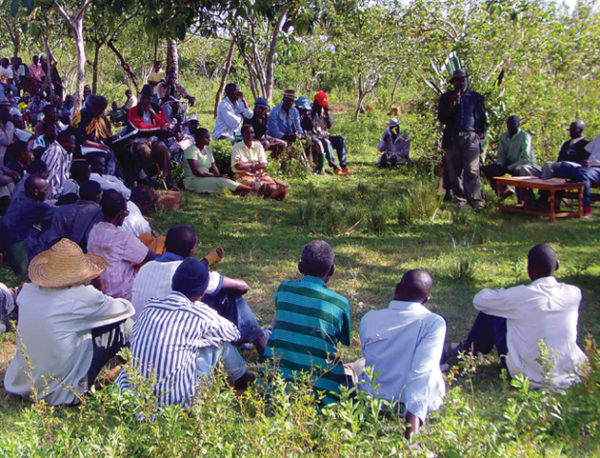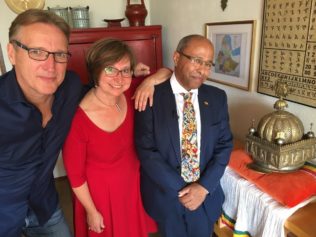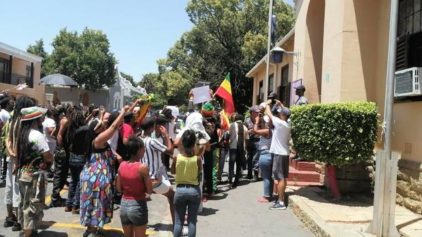Ubuntu is a South African principle that dictates an individual’s responsibility within a corporate sense of identity. The spirit of this principle governs communities throughout Africa and is the foundation on which indigenous methods of conflict resolution are structured.
People from all corners of the continent are united by the belief of humanity’s oneness — that the welfare of one affects the wellness of the whole, that one’s neighbor is a vital part of one’s own survival, that one’s behavior has universal impact. This ideal promotes peace, power sharing, fair distribution of resources, and quells uncivil ways of reacting to inevitable conflict, as it would be foolish for a man or woman to fight against his or herself.
There are many peacekeeping mechanisms across Africa that are just as diverse as its people. Generally speaking, the systems that maintain social solidarity on the government level are macrocosms of how African communities have peacefully co-existed for centuries.
Here are five examples of contemporary African resolution tactics that are deeply rooted in tradition.
Truth and Reconciliation Commissions
The Truth and Reconciliation Commission (TRC) was a court-like restorative justice process that took place following apartheid in South Africa. Victims and offenders of human rights violations faced each other and shared statements about their experiences publicly to their shared community. The TRC was a platform that bypassed the traditional justice system and leaned towards community-based reconciliation practices that restored relationships between victims and offenders, and promoted community-wide healing.
This process was largely viewed as a success, setting the stage for similar processes in other countries.
In the years following the Rwandan genocide (1994) that ravaged the country, killing nearly one million people and crippling the societal infrastructure, the Justice and Reconciliation Process was created to peaceably reconstruct Rwanda’s identity and build trust between two ethnic groups (Tutsis and Hutus) who had been historically at war.
In Liberia, a country with a deep history of social and political unrest, that culminated to mass violence, military dictatorship, social corruption and wide-spread killings in the late 1970s, the Truth and Reconciliation Commission (TRC) of Liberia was formed to promote peace and support the foundation of a just government system.



